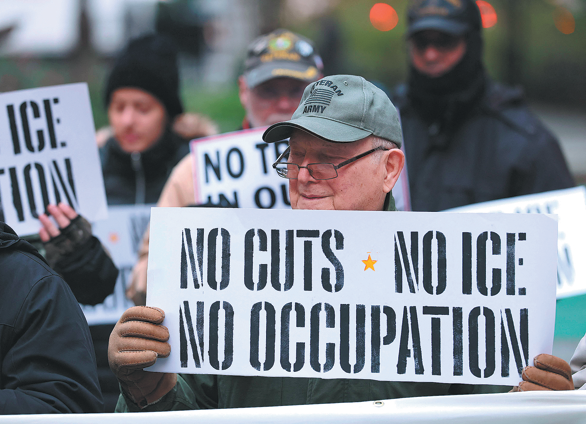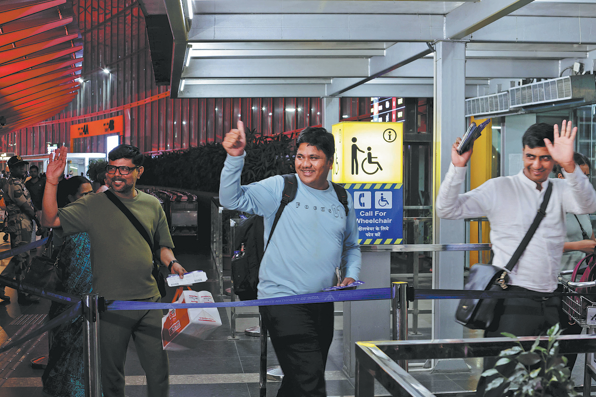Scholar warns of 'weaponizing uncertainty'
Trump's approach described as consistent but incoherent, leading to patchy outcomes


A year since his election victory, United States President Donald Trump's economic policies are fulfilling his campaign promises but are weaponizing uncertainty, exacerbating global economic divisions and risks, a US economist said.
Adam Posen, president of the Peterson Institute for International Economics, a Washington, DC-based independent nonprofit, nonpartisan research organization, said the institute's predictions from a year ago were "broadly right".
The US and China agreed to a one-year trade truce, which was announced following the bilateral meeting between the two heads of state in late October.
Posen noted that Trump's core agenda includes a 15 percent across-the-board tariff, targeted duties on semiconductors, autos, steel and pharmaceuticals, and trade barriers that are "anti-China, but less anti-China than the hawks in either the Joe Biden administration or the Republicans wanted".
"It's about weaponizing uncertainty. It's about hostility to foreigners, whether allies or not. It's about extreme skepticism toward trade and migration. It's about fiscal excess. And it's about exercise of executive power," he said in a Peterson Institute discussion on Nov 7. He called the approach consistent yet incoherent, leading to patchwork outcomes that are "not wins "economically.
Explaining the delays in negative impacts, Posen said that models created by Warwick McKibbin and Marcus Noland, senior fellows at the Peterson Institute, showed that the effects of tariffs and deportations take about a year to fully emerge. "Those models were built with one-year periods. So, all the effects that they were forecasting would only be kicking in roughly now," he said.
Businesses faced a "long period "of uncertainty after the April 1 tariff announcement. "It takes a while," Posen said, citing Toyota and Caterpillar executives who are weighing whether to set up "separate production in China".
According to Posen's analysis, the US administration's goal of deporting one million people yearly has not cratered the economy due to "underground" adaptation.
"The numbers measuring how many people are being forced out or on net leaving … are not right," he said, adding that sectors such as food processing, harvesting, mining, light manufacturing, hospitality and construction all show flat output and employment, meaning the "workers are still there".
Posen warned of a "stagflationary combination" ahead, which would include shortages, inflation and contraction, unless deportations stop. "The growth rate is coming down and the inflation rate is going up," he said.
According to Posen, artificial intelligence investments serve as an "exogenous salvation". He described it as "deus ex machina" (a Latin phrase meaning "god from a machine") in his April 2025 outlook.
Maurice Obstfeld and Karen Dynan, both senior fellows at the Peterson Institute, ran scenarios showing "what a mess the economy would be if we didn't have AI", as tech giants self-finance rapid AI spending from retained earnings, achieving early productivity gains.
"The acceleration of investment in AI was on our bingo card, but wasn't yet a bingo," Posen said. "We're almost there."
Yet AI alone cannot mask structural issues. Posen mentioned that tariff-hit industries will see rising domestic prices and falling output, employment and growth.
Posen's article on "new economic geography", published in the September-October 2025 issue of Foreign Affairs, a leading US magazine for in-depth analysis of foreign policy, said firms and governments are abandoning reliance on US "insurance", and are self-insuring through non-dollar assets and localized investment.
In the article, Posen said that US allies are suffering the most. "The United Kingdom, Japan, South Korea and eventually Canada are being most exploited," he wrote.
By contrast, "China, as we've seen, has been able to stand up against the US and basically facing Trump down", Posen said.
yifanxu@chinadailyusa.com

































